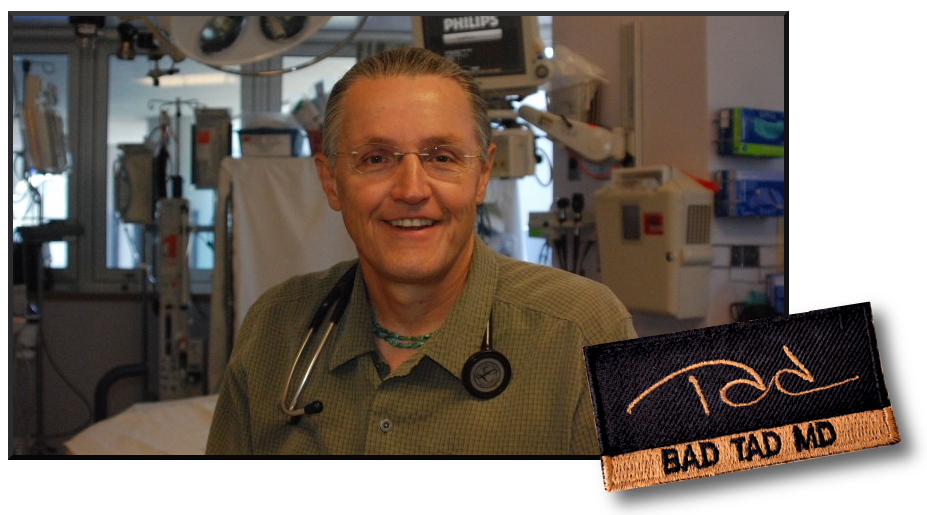Cesar and Rafael
An eighty-six-year-old lady came in by ambulance with a report of having passed out at home.
When I walked in the room, her two sons were at the bedside. I recognized both of them. Rafael had been a tech in our emergency department years ago. His brother, Cesar, called me by name as I approached them. He had also worked at our hospital in the past. The two were very attentive and gave me their mother’s history.
The patient’s initial evaluation was pretty straightforward. She denied any pain or losing any blood. She had been pretty healthy her whole life. She was pale and her blood pressure was low.
I got busy trying to figure out what was wrong with her. As anticipated from her appearance, she was very anemic. I needed to figure out why her blood count was low and do something about it. When we put a tube down into her stomach, it brought back blood so I figured her anemia was caused by a bleeding ulcer. I ordered a blood transfusion and continued looking for other problems.
As test results and vital signs showed she was getting worse and worse, I shared the information with the patient’s sons along with my increasing pessimism she was going to survive. All the time, I was doing everything I could to save her. At one point, we had fluids, blood and medications running in six IV catheters.
As we approached the end of my shift, the patient took a turn for the worse. The nurse noted her abdomen was distended. I checked her and, sure enough, her belly was blown up like a balloon and very firm. A quick peak with an ultrasound confirmed it was full of blood.
This changed things. Bleeding ulcers are a medical condition, cared for in the hospital by internal medicine specialists. A belly full of blood is a surgical condition. But the patient was not stable enough to even think about operating on her. She was going to die.
Even though I knew no one would operate on her, I asked a surgeon to come and see her to make sure we’d done everything we could do to save this woman’s life. The surgeon came, saw the patient briefly and told the sons there was nothing that could be done.
With the picture of futility now clear, the sons had to decide whether to have us keep making heroic efforts to save their mother or to just make her comfortable as she died. They were clearly troubled by this and still undecided when the patient was ready for transfer to a bed in intensive care. As the sons stood to leave the emergency department, I walked up to Cesar, shook his hand and gave him an abraso: the kind of hug Mexican men give each other. When I turned to Rafael, he fell on my shoulder, wrapped his arms around me and sobbed. Then, rather than release me like Cesar had done, he held me and cried. So did I.
When they walked out, I returned to my writing area, trying to get myself under control to finish up my charting. A co-worker asked how I was doing. I was surprised when I used the word “fun” to describe the experience. What I meant was that it was an emotional, human interaction made even more intense because it was with people I knew. It really was a “fun” experience.
Trackback from your site.

Comments (2)
Elizabeth
| #
Philip uses that word “fun” pretty liberally too, in ways most people might not expect. Fun meaning satisfying and exhilarating more than happy or positive.
Reply
Flavia
| #
Very touching story. I hope they are doing okay. The pain of losing a parent its immense. Thanks for sharing your stories.
Reply